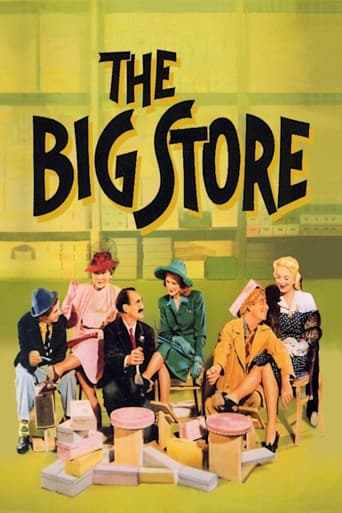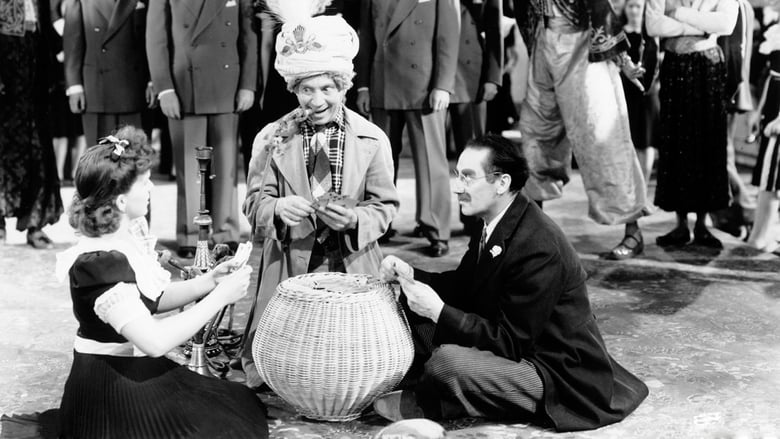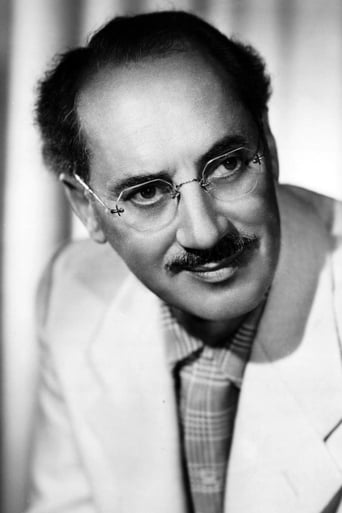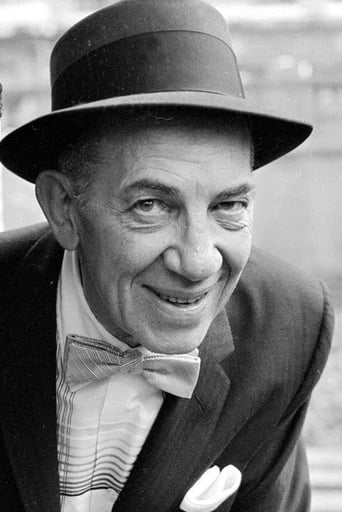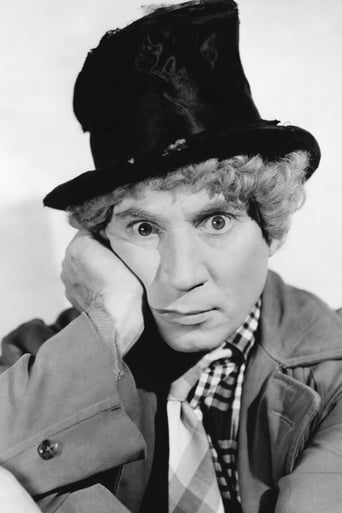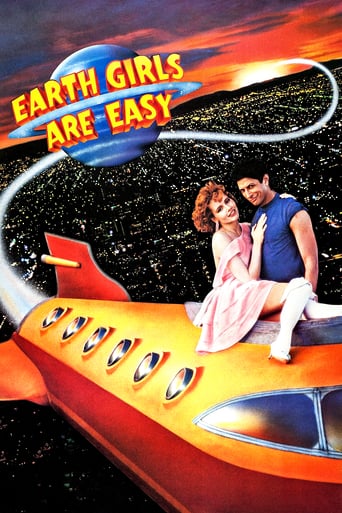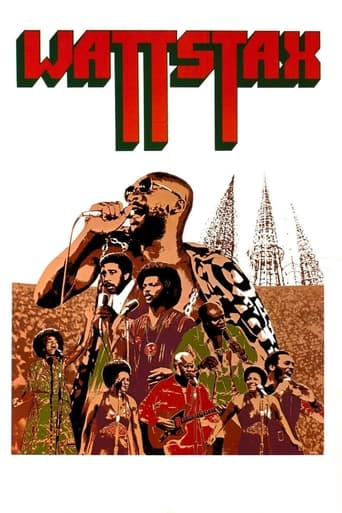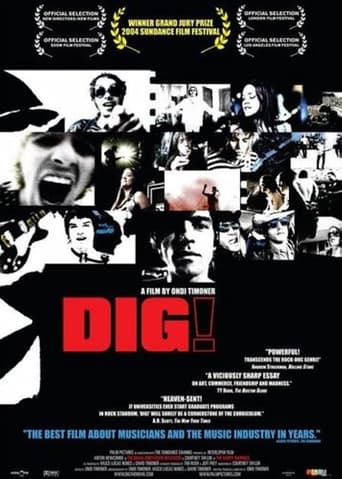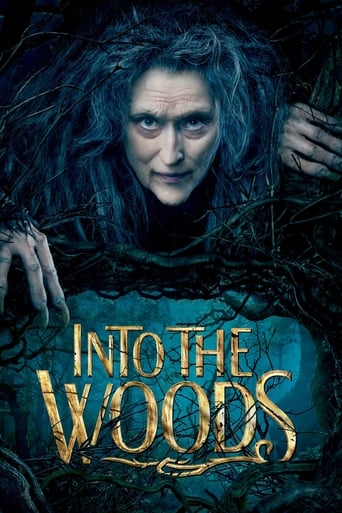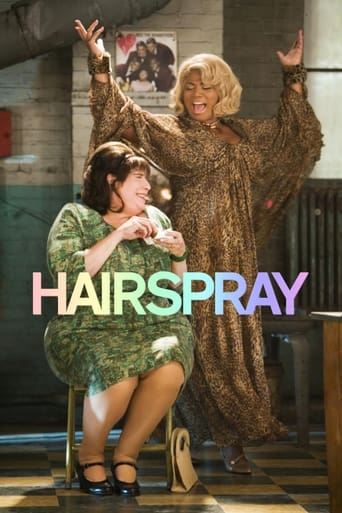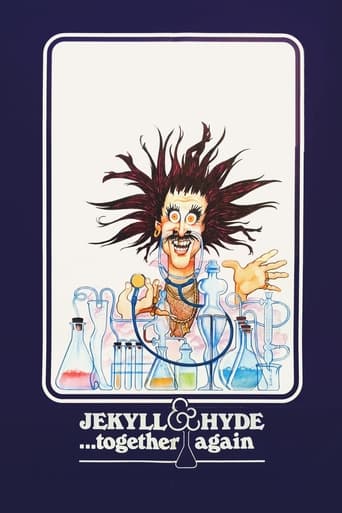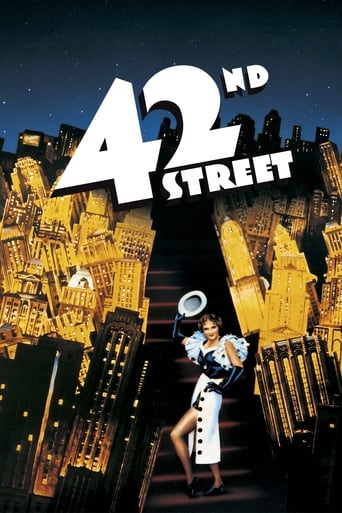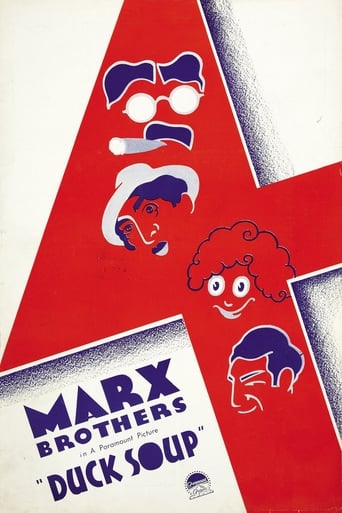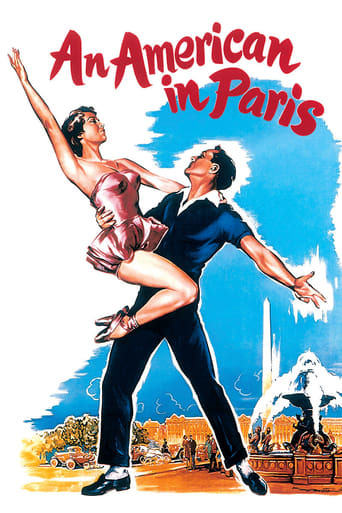The Big Store (1941)
A detective is hired to protect the life of a singer, who has recently inherited a department store, from the store's crooked manager.
Watch Trailer
Free Trial Channels
Cast


Similar titles
Reviews
Wonderfully offbeat film!
The movie's neither hopeful in contrived ways, nor hopeless in different contrived ways. Somehow it manages to be wonderful
All of these films share one commonality, that being a kind of emotional center that humanizes a cast of monsters.
It's a good bad... and worth a popcorn matinée. While it's easy to lament what could have been...
OK, yeah, it's a mess, and there's no glory in the messiness either. Eventually it loses its balance altogether and degenerates into something resembling a variety show, with the comedy subjugated to, God help us, "The Tenement Symphony" - which soon enough gives way to a SECOND harp solo, a cardinal sin. The chase scene at the end, while quite fun in its way, is hyper-extended, ill-motivated, and entirely word-free, hence a waste of their talents. And the unexpected onslaught of racial stereotyping in the middle third is just one example of the throwing-sh*t-against-the-wall distractions and gadgeteering that clutter things up. But at this remove, the gadgets and their attendant art-deco design are fascinating in and of themselves, as is the big production number, especially that super-hip rockabye deadpan woman. While they're terribly integrated, Chico's piano number and Harpo's super-eclectic trio with himself are, in and of themselves, as enjoyable as any of their interludes that I've seen. And when the comedy we're all there for is actually going on, the boys are as sharp, fresh, and at-home in their shtick as ever, with Groucho making a welcome return to ironic self-referentiality, not to mention Margaret Dumont. And the impressive swath that Harpo removes from a vamp's dress can't have pleased the Hays Office.
I finally brought myself to watch all of the Big Store, the movie on the flip side of Go West DVD. I recall seeing Store (in the late 60's/early 70's I deliberately saw any Marx movie whether on TV or in a revival in a theatre until I had seen them all) years before and being bored out of my skull.I had tried to watch it a few weeks earlier, but gave up after the scene where the beds can be hidden in the wall or floors.This time, biting the bullet, I watched Groucho sing while he sold and the final chase scene with sound effects added that made it seem like a Hanna-Barbera cartoon.And the end, I had to admit, The Big Store was passable--provided it had starred someone else.If you can erase the fact you're watching the Marx Brothers from your mind, The Big Store seems exactly like any overblown 1940's comedy. It well meets the standard for a Red Skelton film or perhaps something with Danny Kaye or early Jerry Lewis.If you can perform the mental feat that Groucho is Red Skelton, Chico is Danny Kaye and Harpo is Jerry Lewis (uggghhh!), the Big Store does not seem like the abysmal thing it is.Seeing this film makes you understand just how high the bar the Marx Brothers set for their movies, much higher than virtually any other comic working with a film studio, instead of independently as Chaplin did.Things happened in a Marx Brother film that just never happened in one with Red Skelton: Margaret Dumont being deviled by Groucho, Groucho being deviled by Chico, and the rest of the Universe bedeviled by Harpo. Out of the gate in the Cocoanuts, the Brothers' first film in 1929, we already have the "Why A Duck?" routine between Groucho and Chico. We already have Groucho's "Won't you lie down?" to Margaret Dumont, and Harpo giving Basil Ruysdael his leg while whistling a tune from the arcane musical, "Floradora." Even as we move to the later films, there is also the Marx's brilliant sense of surrealism and absurdity, far beyond the capabilities of anyone else. Their penultimate film, A Night in Casablanca, an almost last hurrah which they financed themselves and had more say over, can be arguably ranked with the lesser Paramount or best MGM films.But Store provides a disconnect which the brothers never are able to overcome. This was never something impossible for them. The plot was generally something they made their way around, jumped over, or totally jettisoned. Here, there are trapped in it, and it's not pretty.There are still some marvelous moments--how can there not be in a Marx Brothers movie? Groucho's last film appearance with Margaret Dumont is as always wonderful. Harpo has a magnificent harp solo where he turns into Mozart and his mirror reflections spring to life far more than any ever did in Duck Soup. The opening sequence where Dumont visits Groucho's fly-by-night detective agency (where Harpo is the given the Quasi-Zeppoesque role as Groucho's Assistant) is wonderful.But the lengthy Groucho musical number (three DVD chapters!) is pretty much a straight one. There's no tattooed lady, African explorer, or pre-war hysteria to be found. The juvenile's musical number, The Tenement Symphony, is nowhere as mercifully brief as When My Dreams Come True is in the Cocoanuts. Harpo and Chico even participate in it.Worst of all, however, are the moments where the brothers are made into just any old comedy team, pushing wrong buttons to create chaos, riding on roller skates and unicycles to escape the villain, and serving up a wienie with some Puccini (Or is it Rossini? My mind has blocked it out like a car accident).You don't gotta sing while you sell. Please don't.It's sad that the Marx's valedictory with MGM had to be this generic bore. Through no fault of their own, they became personae non grata at the studio and seemed to be given a script pulled at random from a file drawer.So, if you're a Red Skelton fan, and can ignore the fact you're watching Groucho, Harpo and Chico, by all means, watch The Big Store. If you're a Marx Brothers worshipper (they don't merely have fans), please show their memories respect and keep the DVD on the side that has Go West.
Tony Martin's "Tenement Symphony," although seemingly misplaced in the movie, was great, in that its melody was classic in tone, and Martin's voice only enhanced the overall effect. The "ditzy" chase scenes towards the finale of the film, although exaggerated, and obviously performed by stunt doubles, and stop-action, or jerky photography, were "over the top" for belly laughs. Harpo's mirror-reflection musical moment was a great deep breath of rest from his usual zaniness; it was magic, as was Chico's duet with him. For me, born in 1936, my viewing it at still a tender age of nine or ten only made this little boy happy and delighted with the film. If I were to be critical at the age I am today, I would say, the film doesn't come close to what the Marx Brothers films intended from earlier works...but just see it again through the eyes and heart of the child I was, and you'll agree that, gee; what a funny film the Big Store really was.
While I disagree with the conventional wisdom about the Marx Brothers' film made before The Big Store, Go West (1940), believing it to be yet another one of their many masterpieces, I have to agree with the conventional wisdom about The Big Store. It has the feeling of a contractual obligation film. One, two or all three of the Marx Brothers are absent for long periods of time. The story is often confusing. The film doesn't flow very well. Some of the material featuring other performers simply doesn't work. Even when it does work, it's never as good as the Marx Brothers' material, and even their work is too often strangely flat.The Big Store is really the story of Tommy Rogers (played by famed pop singer Tony Martin). Rogers has just gained partial ownership of the Phelps Department store with the passing of a relative. However, he's not interested in the store, so he plans to sell and use the money to build a state of the art music conservatory in conjunction with his friend, Ravelli (Chico Marx). Unfortunately, not everything at the Phelps store has been on the up and up, and surviving store manager Mr. Grover (Douglass Dumbrille) is worried about buyers discovering their creative bookkeeping. So they try to off Tommy, which leads to hiring private detective Wolf J. Flywheel (Groucho Marx) and his assistant, Wacky (Harpo Marx), who happens to be Ravelli's brother. At the same time, Mr. Grover is courting Martha Phelps (Margaret Dumont), Tommy's aunt, with machinations of eventual ownership of the store.In terms of meatiness, that's far more of a plot than I usually relay, but all of that is presented in the first 10 - 15 minutes of the film. The remainder involves playing out those threads. The problem is that the above is way too complicated, especially for a Marx Brothers film. The Marx Brothers style was that plots were really secondary to their anarchic, madcap skits. In truth, the two were usually well integrated in their films, with meatier plots than the conventional wisdom has it, and the skits relatively seamlessly enmeshed in the plots.Here, the plot is often difficult to follow, and when you do manage to follow it, it just isn't that interesting. Despite this, there are still a number of fabulous set pieces. The scene where we first meet Groucho and Harpo in Groucho's private eye office is hilarious. The bedding department scene is good. The climax, featuring an extended chase through the department store, is a lot of fun, including its cartoonish use of wire stunts and camera tricks.But there just isn't enough of that stuff, and one of the Marx Brothers' strongest points--Groucho's verbal bantering, is oddly flat just as often as it isn't. Even the usual musical sequences are problematic, unlike their sublime charm in Go West. Only Harpo's musical sequence and a brief duet with Chico on the piano are worthwhile. Groucho is given a schmaltzy "big musical production number" that goes on too long, is supposed to be funny and isn't, and ends up with Groucho doing little else but mugging and doing his trademark walk while other characters we're not familiar with sing the song.Tony Martin has a song early on in the film that's okay, but doesn't exactly fit the tone of the film, and later, he does another "big musical production number", called "The Tenement Symphony", that is bizarre, to say the least, but not particularly funny. Instead, it's a strange mish-mash of styles that is strongly derivative (in a negative way) of George Gershwin.While Marx Brothers completest certainly can't avoid The Big Store, it's difficult to imagine this being anywhere near the top of the list for any Marx Brothers fan. It's also not a great way to introduce anyone to their work (as they're likely to not be very interested in seeing more), and there are far better films for casual viewers who are not particularly interested in the Marx Brothers.The few hilarious scenes could easily be excised and work just as well (if not better) in isolation, as "random" skits. But the film is very slightly recommendable for them.

